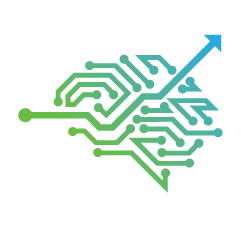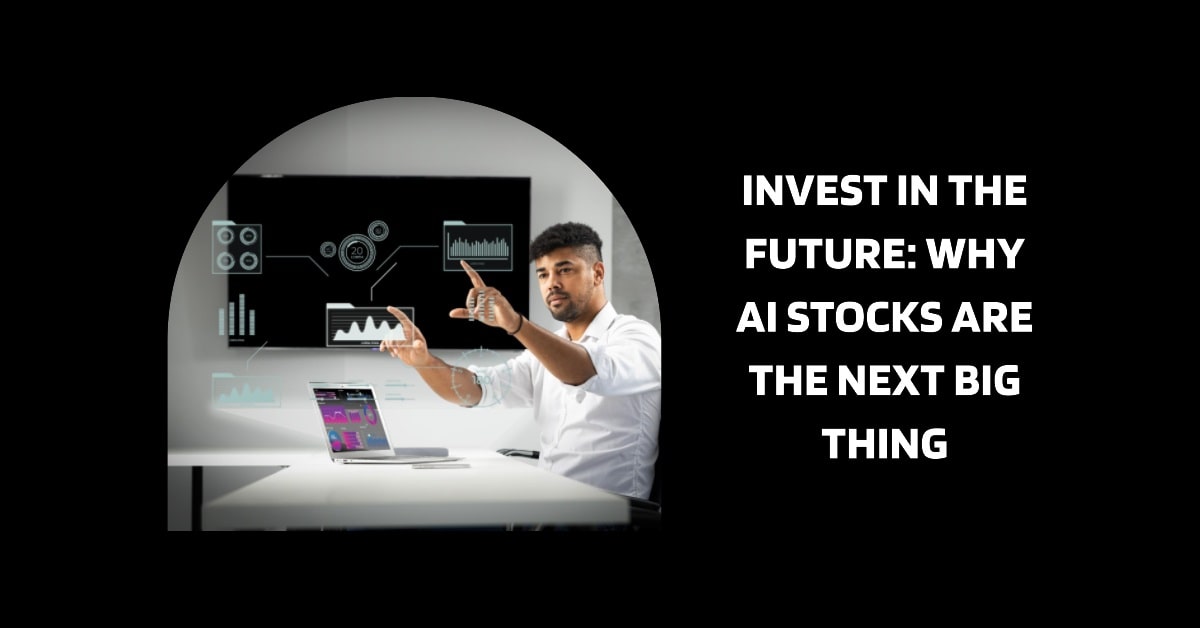Introduction
Artificial Intelligence, often simply referred to as AI, has transitioned from the pages of science fiction novels into the tangible reality of our daily lives. This technological marvel, encompassing machine learning, neural networks, and advanced algorithms, is not just a fleeting trend; it’s a paradigm shift that’s redefining industries, altering consumer experiences, and reshaping global economies.
The rapid evolution and integration of these intelligent systems offer a glimpse into a future where technology and human endeavors seamlessly intertwine. As businesses, governments, and institutions increasingly rely on smart technologies, it becomes crucial for individuals and investors to understand the profound impact and opportunities that lie ahead. Recognizing the potential of this transformative force is the first step in navigating the vast landscape of possibilities it presents.
The Exponential Growth of AI
The Current Landscape
Over the past decade, the realm of artificial intelligence has expanded at an astonishing rate. Voice assistants, machine learning algorithms, and predictive analytics are just a few examples of how this technology has seamlessly integrated into our daily lives. Major corporations, including Google, Amazon, and Microsoft, are channeling significant resources into research and development, underscoring the pivotal role of this technology in the modern tech landscape.
Market Potential
Recent reports suggest that the global market for intelligent systems was valued at a staggering USD 62.35 billion in 2020. Projections indicate a compound annual growth rate (CAGR) of 40.2% from 2021 to 2028. Such impressive growth metrics present a golden opportunity for investors keen on tapping into the potential of emerging technologies.
Proliferation in Various Sectors
While the tech sector remains at the forefront of artificial intelligence innovation, its influence is permeating a multitude of industries. From healthcare’s diagnostic tools to finance’s risk assessment models, and from automotive’s self-driving features to agriculture’s crop yield predictions, intelligent algorithms are revolutionizing traditional operations.
The Rise of Intelligent Start-ups
The surge in interest around intelligent systems has also given birth to a plethora of startups. These new entrants, armed with innovative ideas and solutions, are making significant strides in niche areas. Whether it’s a platform using deep learning for medical imaging or a solution harnessing neural networks for optimizing supply chains, these startups are broadening the horizons of what’s achievable.
The Global Push for Research
Countries around the world are recognizing the transformative potential of intelligent technologies. As a result, there’s a global push for research and development in this domain. Governments, academic institutions, and private entities are collaborating to advance the frontiers of machine learning, neural networks, and robotics. This collective effort not only accelerates the pace of innovation but also amplifies the growth trajectory of the sector.
The Consumer’s Embrace
It’s not just industries and businesses that are integrating intelligent solutions; consumers are also embracing them wholeheartedly. From smart homes equipped with intelligent thermostats to wearable devices that monitor health metrics using advanced algorithms, the public’s acceptance and demand further fuel the growth and adoption of these technologies.
Diversification of AI Applications
Beyond Silicon Valley’s Giants
While the tech behemoths like Google, Amazon, and Microsoft are often associated with cutting-edge artificial intelligence innovations, the reach of intelligent systems extends far beyond these giants. Numerous industries are now harnessing the power of smart algorithms and machine learning to revolutionize their operations.
Healthcare’s Digital Transformation
The healthcare sector is undergoing a significant transformation, thanks to intelligent systems. From predictive analytics that forecast disease outbreaks to machine learning models that assist in diagnostics, the medical field is leveraging technology to enhance patient care. For instance, deep learning algorithms are now aiding radiologists in detecting anomalies in X-rays and MRIs with increased accuracy.
Financial Sector’s Smart Evolution
In the world of finance, intelligent algorithms are reshaping everything from risk assessment to fraud detection. Robo-advisors, powered by sophisticated algorithms, are offering personalized investment advice, while predictive models are helping banks anticipate market shifts and adjust strategies accordingly.
Automotive Industry’s Drive Forward
The automotive sector is another industry experiencing the transformative effects of smart technologies. Beyond the buzz of autonomous vehicles, machine learning models are optimizing supply chains, enhancing safety features, and personalizing the driving experience. Advanced driver-assistance systems (ADAS), for instance, use a combination of sensors and algorithms to enhance vehicle safety.
Agriculture’s Green Revolution 2.0
Agriculture, often perceived as a traditional sector, is also undergoing a tech-driven revolution. From drones that monitor crop health to predictive models that forecast weather patterns and pest infestations, smart technologies are ensuring higher yields and sustainable farming practices.
The Retail Renaissance
The retail industry is leveraging deep learning and neural networks to enhance the shopping experience. Personalized product recommendations, optimized supply chains, and smart inventory management are just a few areas where intelligent systems are making a mark. Virtual try-ons and chatbots are further bridging the gap between online and offline shopping experiences.
Entertainment’s Smart Makeover
The entertainment industry, too, is not untouched by the wave of technological advancements. Streaming platforms use sophisticated recommendation systems to curate content for viewers. Video games, with the help of neural networks, are offering more immersive experiences, adapting in real-time to players’ actions and decisions.
Competitive Advantage and Efficiency
Streamlining Operations with Intelligent Systems
In today’s fast-paced business environment, efficiency is paramount. Companies are turning to smart algorithms and machine learning to streamline their operations. For instance, automated customer service bots can handle a multitude of queries simultaneously, ensuring that customers receive timely responses while reducing the operational overhead.
Data-Driven Decision Making
Harnessing the power of big data is no longer a luxury but a necessity. Through advanced analytics and predictive modeling, businesses can glean insights from vast amounts of data. This data-driven approach allows companies to anticipate market trends, understand consumer behavior, and make informed strategic decisions, giving them a significant edge over competitors.
Automation and Cost Savings
Robotic process automation (RPA), powered by intelligent algorithms, is transforming mundane and repetitive tasks across industries. From invoice processing in finance to quality checks in manufacturing, automation is not only enhancing accuracy but also leading to substantial cost savings.
Personalization: The New Standard
In the age of digital consumers, personalization is key to customer retention and loyalty. Machine learning models enable businesses to curate personalized experiences for their customers, be it through product recommendations, targeted marketing campaigns, or tailored content. This level of personalization, driven by deep learning and analytics, fosters stronger customer relationships and boosts brand loyalty.
Innovation and Product Development
Smart technologies are playing a pivotal role in product development and innovation. By analyzing consumer feedback, market trends, and competitive landscapes, businesses can identify gaps and opportunities. Neural networks and advanced simulations can then aid in the rapid prototyping and testing of new products, ensuring they meet market demands and stand out from the competition.
Enhancing Employee Productivity
Intelligent systems are not just external-facing; they also play a crucial role internally. By automating routine tasks, employees can focus on more strategic and creative aspects of their roles. Furthermore, analytics-driven tools can assist in talent management, training, and skill development, ensuring that teams remain agile and equipped to handle the evolving business landscape.
Ethical and Sustainable AI
The Imperative of Responsible Algorithms
As intelligent technologies become deeply ingrained in our society, the importance of ethical considerations grows exponentially. Responsible algorithms ensure that decisions made by machines are free from biases, transparent in their workings, and accountable for their outcomes. Companies that prioritize these ethical standards not only gain public trust but also mitigate potential legal and reputational risks.
Fairness in Machine Learning
One of the significant challenges in the realm of intelligent systems is ensuring fairness. Machine learning models, if not trained correctly, can inadvertently perpetuate or even amplify societal biases. Emphasizing fairness means ensuring that these models are trained on diverse datasets and regularly audited for biased outcomes. This approach ensures that the benefits of technology are equitably distributed across all user groups.
Transparency and Explainability
The “black box” nature of some deep learning models has raised concerns among regulators, users, and stakeholders. Pushing for transparency means developing models that are interpretable and explainable. When users and stakeholders understand how decisions are made, it fosters trust and allows for more informed interactions with the technology.
Data Privacy and Security
With the proliferation of intelligent technologies comes the increased handling of vast amounts of data. Ensuring the privacy and security of this data is paramount. Companies that prioritize robust data protection measures not only comply with global regulations but also assure users that their information is in safe hands.
Green Computing and Sustainability
The environmental footprint of computing is a growing concern. Training sophisticated models requires significant computational power, leading to high energy consumption. Embracing green computing practices, such as energy-efficient algorithms and sustainable data centers, is crucial. Companies that prioritize sustainability in their tech endeavors not only contribute to environmental conservation but also appeal to eco-conscious stakeholders and consumers.
Collaborative Governance
The ethical landscape of intelligent systems is complex and ever-evolving. Collaborative governance, involving tech companies, regulators, civil society, and academia, can help navigate this complexity. By working together, these entities can develop frameworks and best practices that ensure the responsible and beneficial deployment of intelligent technologies.
Conclusion
The integration of intelligent systems into our daily lives and global industries is not a mere trend; it’s a transformative force that’s reshaping the very fabric of society. As we stand on the cusp of this technological revolution, it’s imperative to recognize both the immense potential and the responsibilities that come with it.
Companies that harness the power of machine learning, deep learning, and other smart technologies are not only optimizing their operations but are also paving the way for innovations previously deemed the stuff of science fiction. These advancements, however, come with their own set of challenges. Ethical considerations, sustainability, and the need for responsible algorithms underscore the importance of a balanced approach to technology adoption.
For investors, stakeholders, and consumers, this era presents a unique opportunity. It’s a chance to be part of a movement that’s not just about technological prowess but also about shaping a future where technology serves humanity in its truest sense. A future where intelligent systems enhance our capabilities, address pressing global challenges, and create a world that’s more connected, efficient, and equitable.
In essence, as we navigate this brave new world of intelligent technologies, it’s our collective vision, values, and choices that will determine the trajectory. And if steered with foresight and responsibility, the promise of a brighter, smarter future is well within our grasp.
FinBrain Technologies
99 Wall St. #2023
New York, NY 10005


Leave a Reply